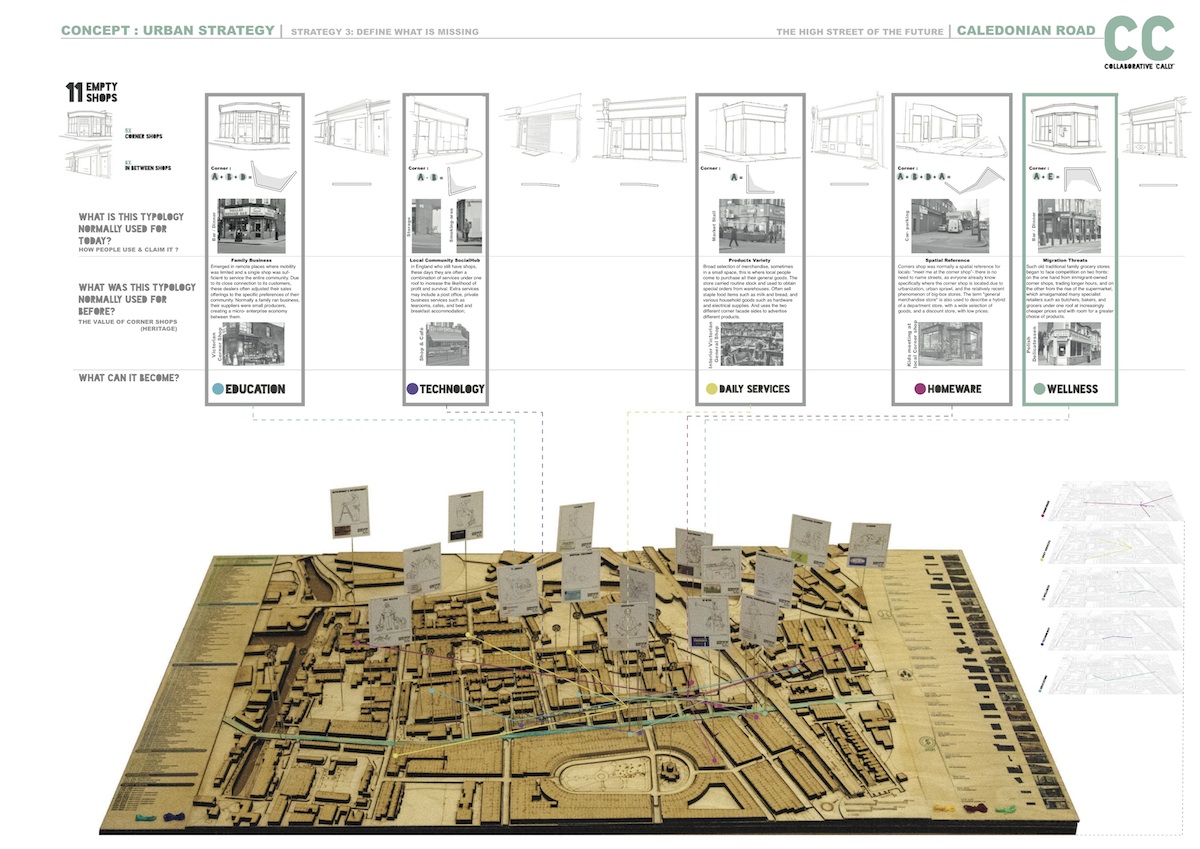With The Intelligent Optimist exhibition well underway, recent BA Architecture graduate Luiz Conceicao spoke to us about his local project ‘Collaborative Cally’ and his hopes to challenge people’s traditional understanding of architecture.
Tells us in a bit of detail about your project.
How can local economies adjust to take advantage of underutilized locations and the skills of local people along Caledonian Road? ‘Collaborative Cally’ develops a framework for a new sharing network based around the redevelopment of a series of currently vacant corner shops along the High Street.
Each new contemporary corner shop acts as a centre for a different specialism – technology, education, daily-services, homeware and wellness – a network of different skills and exchange that is based on a detailed survey and understanding of the talents of various people in the local area.
What inspired this project?
The idea of collaborative consumption in the 21st century – we have been moving from an individualist high consumption to a collaborative consumption life style. We no longer need ‘superfluous’ items; we need a sense of community where participation is fundamentally important. We now live in a ‘global village’, where there is an entire marketplace for efficient peer-to-peer exchanges of skills, stuff, space and time.
How did King’s Cross and the surrounding area inspire you?
Here there is a great amount of cultural diversity that has a lot of potential. The problem is that this diversity is joined by a huge segregation issue. Instead of bringing together and allowing the mixture between these groups, they are displaced from each other. The evident question then was how to bring these groups together to allow skills, knowledge and experience to be exchanged between them.
Specifically in the case of Caledonian Road we saw the opportunity to allow such exchange to happen. Here such groups already meet on the High Street, but they don’t exchange; it is used as a transitional space rather than a gathering social space. Making use of under-utilized assets, empty corner shops for example, my ambition was to convert these spaces into meeting points/communal spaces or social-hubs.
Visit The Intelligent Optimist – The Fixers webpage to read the full interview.





